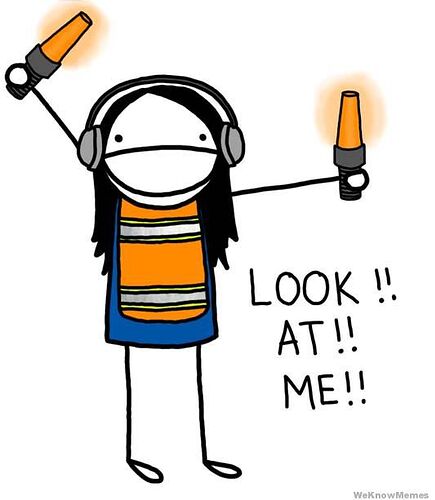There are consequences to flags beyond simply making a topic easier for one to read.
Flagging of posts also directly impacts a person’s reputation, through the “trust level” metric. Affecting what areas of the site one can access, the ranking of user-created topics, as well as future moderation decisions.
It often is used as an accusation - such as two flags I got today that cite offense, abuse, or violation. Often coupled with actual in-thread accusations, which then cannot be addressed because replies are hidden. So, to a cursory reader, they see that I supposedly said some thing based upon other people’s posts, but any attempts to clarify are hidden. Why are accusations a serious matter when somebody makes them, but they are not serious enough to follow up upon? Doesn’t that imply that they are done for convenience, and as such, frivolous? It’s amazing that these are almost invariably topics which are advocating for some form of social justice - yet disagreements are punished without any pretense of a due process. Sure, it’s informal, but being informally accused of advocating harm is still distressing. Offense, abuse, and violation are themselves serious things to accuse a person of.
Since it is a system which promotes perceived safety by means of informal complaints, people use it and it effectively becomes a form of enforcing group norms. So the norms are determined by those who anonymously complain the loudest and the most, which is basically populism. Again, one of the contemporary problems that many here claim to be trying to address in society.
Before people flag a post, they should read the guidelines and use them. Those are supposedly the protocols/criteria that we use to hold ourselves and others accountable. I had to constantly point these out on BB, and nobody cared, which caused resentment and made the claims of community feel rather hollow.
Be Agreeable, Even When You Disagree
You may wish to respond to something by disagreeing with it. That’s fine. But remember to criticize ideas, not people. Please avoid:
Name-calling
Ad hominem attacks
Responding to a post’s tone instead of its actual content
Knee-jerk contradiction
Instead, provide reasoned counter-arguments that improve the conversation.
Determining what should be “offensive” depends upon context. A post does not become abusive based upon how you personally decide to interpret it, bringing your own context. And if it would not be offensive to you coming from a different person, then this clearly indicates that your problem is with that person, rather than the post. And if a poster is actually causing harm, trying to hide their posts and topics would still be an ineffective way to confront actual problems.
